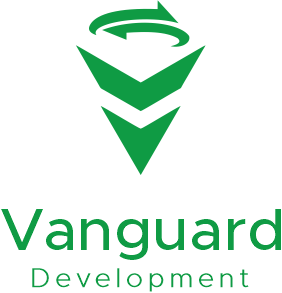Your Roadmap to Success: Preparing for a Future in Commercial Development
Breaking into the commercial real estate industry can be a thrilling yet complex journey. Commercial development, whether it’s office spaces, retail centers, or mixed-use developments, requires a blend of strategic vision, meticulous planning, and a deep understanding of the market. Success in this field doesn’t happen overnight—it requires careful preparation, resilience, and an openness to learning and adaptation.
This guide lays out a roadmap for aspiring commercial developers, covering everything from building foundational skills to staying agile in an ever-evolving market. By following these steps, you can prepare for a successful and impactful career in commercial development.
1. Master the Fundamentals of Real Estate and Development
To succeed in commercial development, it’s essential to build a strong knowledge base. This includes understanding market dynamics, zoning regulations, construction practices, and financial modeling.
- Study Market Trends: Regularly monitor market reports to understand demand, supply, and growth trends in different sectors. Knowing what types of developments are in demand helps you align your projects with market needs.
- Understand Zoning Laws and Regulations: Familiarize yourself with local zoning laws and regulatory requirements. These can impact your project’s scope and the approval timeline, so understanding them early on saves time and ensures smoother processes.
- Develop Financial Literacy: Project financing, investment analysis, and cash flow management are critical skills. Learning to assess potential return on investment (ROI) and risks associated with each project will enable you to make more informed decisions.
2. Create a Strong Network
In commercial development, relationships are just as important as technical knowledge. Building a network of contacts within the industry can open doors to partnerships, financing opportunities, and valuable insights.
- Engage with Local Real Estate Associations: Attend networking events, seminars, and conferences hosted by real estate organizations. These gatherings provide opportunities to meet seasoned professionals and potential collaborators.
- Cultivate Relationships with Lenders and Investors: Financing is the backbone of any development project. Building strong relationships with banks, private lenders, and venture capitalists can help secure funding when needed.
- Collaborate with Local Government and Community Leaders: Community and government support are crucial for project approvals and navigating local regulations. Establishing a reputation as a responsible developer can foster goodwill and facilitate smoother project approvals.
3. Gain Experience Through Mentorship and Internships
Experience is invaluable in commercial development. Working with or shadowing established developers can provide a first-hand look at the challenges and rewards of the industry.
- Seek Out Mentorship: Partnering with an experienced mentor gives you insight into project planning, risk assessment, and real-world problem-solving. Mentors can also offer guidance on common pitfalls to avoid.
- Pursue Internships or Entry-Level Roles: Look for roles with established development firms. Even entry-level positions can offer exposure to feasibility studies, project management, and on-the-ground construction work.
4. Develop a Strategic Plan
Once you’ve gained foundational knowledge and experience, it’s time to think strategically about your career in commercial development. Consider your niche, goals, and how you plan to approach projects.
- Identify Your Niche: Whether you’re interested in office buildings, retail centers, or residential complexes, honing in on a specific sector can help you build expertise. Understanding the unique challenges and opportunities within your niche will make you a more effective developer.
- Set Short- and Long-Term Goals: Determine what you want to achieve in the next five to ten years. Consider starting with smaller projects to build credibility before taking on larger, more complex developments.
- Create a Project Pipeline: Identify potential projects that align with your goals and resources. Evaluate each opportunity’s viability, considering factors like location, market demand, and financing availability.
5. Secure and Diversify Financing Options
Commercial development often requires substantial upfront capital. As you prepare to embark on projects, securing financing is crucial to move forward confidently.
- Research Different Financing Models: Familiarize yourself with options like joint ventures, mezzanine financing, and bridge loans. Each has unique benefits and is suitable for different project stages or risk profiles.
- Build Relationships with Financial Institutions and Investors: A diversified pool of funding sources can help you better navigate economic shifts. Establishing trust and a solid track record with lenders and investors increases your chances of securing funds on favorable terms.
- Consider Alternative Funding: Crowdfunding, private equity, or green financing options may also be viable sources of funding, especially if your project aligns with emerging trends, such as sustainable or mixed-use developments.
6. Assemble a Skilled Development Team
The success of a commercial project is dependent on the expertise and synergy of your development team. Surrounding yourself with experienced professionals can mitigate risks and improve project execution.
- Hire a Knowledgeable Project Manager: An effective project manager can oversee day-to-day operations, keep the project on schedule, and coordinate with contractors and other team members.
- Collaborate with Architects, Engineers, and Contractors: Partner with experienced professionals who understand your project’s vision. Regular collaboration ensures that design, budget, and construction align with your goals.
- Engage Legal and Financial Experts: An experienced attorney can help navigate zoning laws, contracts, and compliance issues. Financial experts can help structure your project budget and manage cash flow, protecting your investment.
7. Embrace Technology and Innovation
Technology is transforming the real estate industry, making project management, data analysis, and marketing more efficient. Staying current with technological advancements can help you remain competitive.
- Leverage Data Analytics for Market Analysis: Advanced data analytics platforms provide real-time insights into market trends, helping you make more informed decisions on location, project type, and pricing.
- Use Project Management Software: Platforms like Procore or Autodesk Construction Cloud streamline project planning, allowing you to manage timelines, resources, and budgets effectively.
- Adopt Sustainable Building Technologies: Incorporating sustainable practices not only benefits the environment but can also attract eco-conscious tenants and investors. Energy-efficient building materials, smart HVAC systems, and renewable energy sources can add long-term value to your projects.
8. Stay Agile and Adapt to Market Trends
The real estate market is highly dynamic, with shifts in economic conditions, interest rates, and consumer demands. Agility and adaptability are essential to sustaining success.
- Monitor Economic Indicators: Stay informed about factors like interest rates, inflation, and local economic trends, as these directly impact development costs and market demand.
- Stay Open to New Opportunities: Be ready to pivot when new trends arise, such as the growing demand for co-working spaces, mixed-use developments, or green buildings. Flexibility in your project approach will help you respond to market changes effectively.
- Invest in Continuous Learning: The commercial development landscape is constantly evolving. Regularly attending industry seminars, workshops, or certification programs will keep your skills relevant and give you a competitive edge.


Leave A Comment